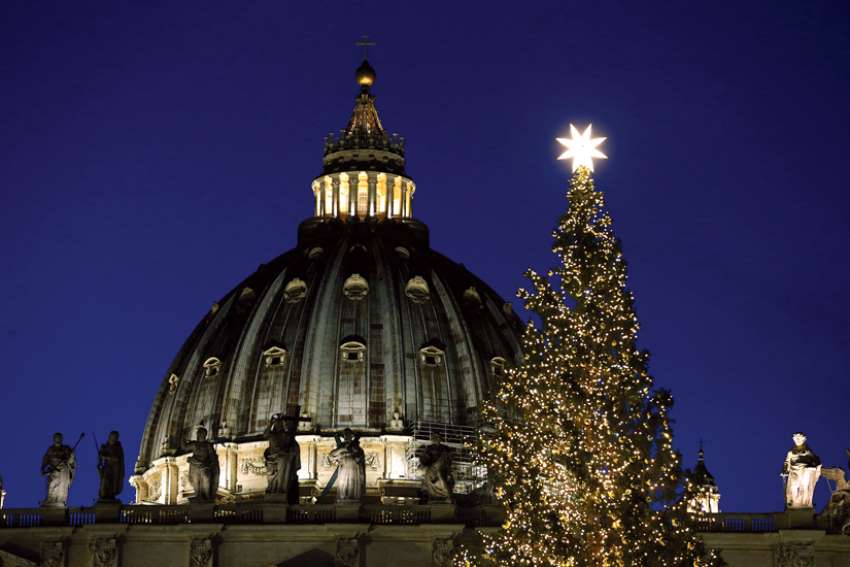A white Christmas would be nice as well, but to care for our planet it’s more important that we follow a more environmentally friendly path.
“On one hand, you find a baby in a manger, the simplicity of shepherds and Mary pondering those events in her heart,” the Green Church Network writes on its website. “On the other hand, the hill of gifts under the tree, the banquet of wasted food and the mountain of trash in the end. What is left of the spiritual significance of Christmas? Green Church wishes you a Green Christmas.”
The Green Church Network is a Quebec-based multi-faith organization that provides practical tools to Christian communities that want to implement environmentally friendly practices. These are oriented toward action, education and spirituality to enable communities to integrate care of creation into day-to-day church life.
Gregory Lynch, director of the Green Church Network, said care for creation is becoming an increasingly more important part of our Christian faith, and encourages families to make the season “as green as possible.”
“Of course the importance of the season can sometimes be lost with the consumerism surrounding it,” said Lynch. “We encourage everyone to remember that when we focus on our faith, our families and our communities instead of gifts and consumption our Christmas season will be greener too.”
The network shares a number of eco-friendly ideas for “Taking care of Creation for Christmas.” Many are simple things like using LED lights to decorate tree and home. These use 90- to 95-per-cent less energy and last longer than ordinary lights, and are more durable and produce less heat to reduce the risk of fire. Green Church Network encourages the purchase of a potted Christmas tree that can be transplanted outside once spring begins. Or it can remain potted on a balcony or deck to be reused next year at Christmas. Those who buy a real tree can check with their municipality to see if trees are picked up for mulching.
Decorations that can be used year after year are also encouraged, as is giving new life to old decorations by re-painting them rather than throwing them out. There are also biodegradable choices by decking your halls with handmade decorations like popcorn and fresh cranberry chains.
When it comes to giving gifts, Lynch suggests considering something that bring you closer to family and loved ones, and closer to your faith. He said family excursions, a dinner with a friend, a visit to a local farm or exploring activities happening in your church community are all options.
“Each of these have less impact on the planet and bring us together as one big family,” said Lynch.
Less impact on the environment can be achieved in the kitchen as well. Try to avoid disposable plates at Christmas dinner and, if you must, use paper rather than plastic plates. Make sure your organic table scraps are composted and that you recycle whatever you can. Try to avoid overpackaged goods and choose products that make less garbage.
And use the heat from your oven to your — and the planet’s — advantage. Let its warmth keep your house toasty. Turn down the thermostat so that the furnace gets less of a workout, and keep your windows closed so that the heat stays inside.
For more tips on making your Christmas a green one, see greenchurches.ca/green-christmas.


